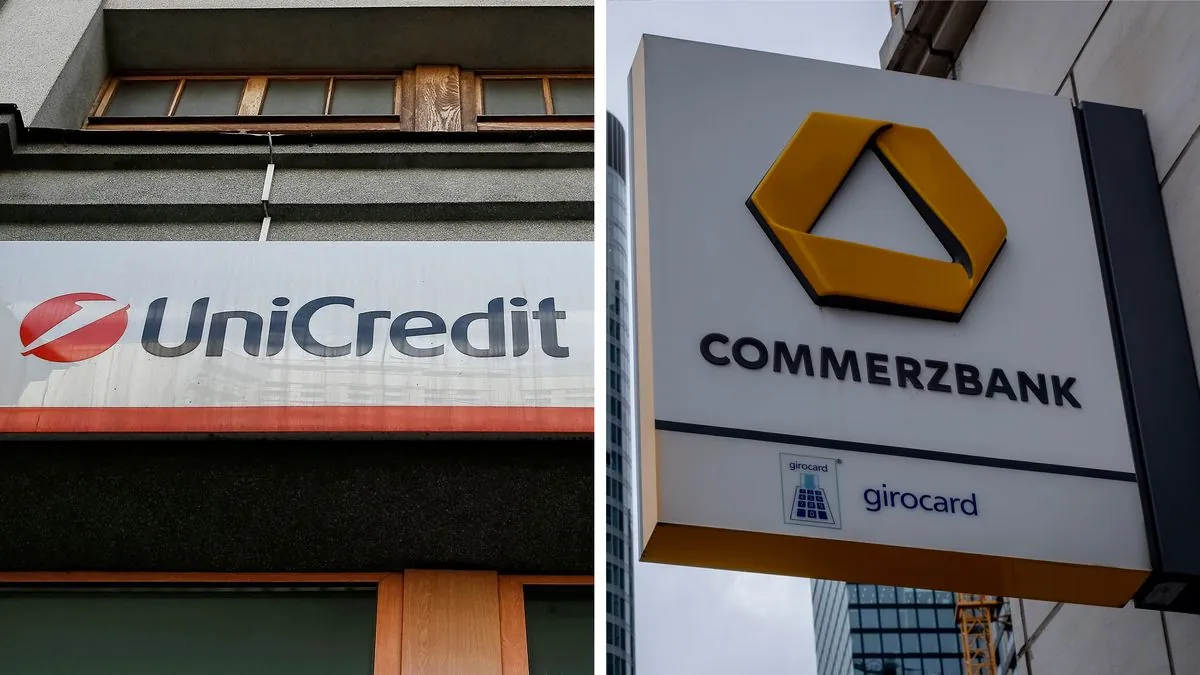In a bold move that has sent ripples through the European banking sector, UniCredit has set its sights on acquiring Commerzbank, Germany's second-largest private lender. This potential takeover bid has thrust the long-standing issue of cross-border banking consolidation in the eurozone back into the spotlight, nearly two decades after the introduction of the euro as a common currency in 1999.
The Italian banking giant UniCredit, under the leadership of CEO Andrea Orcel, has recently acquired a 21% economic interest in Commerzbank, including a 4.5% direct stake purchased from the German government. This aggressive strategy has reignited discussions about the future of European banking integration, a topic that has been largely dormant since the 2008 financial crisis.
The history of cross-border banking mergers in Europe is fraught with challenges. The 2007 breakup bid for Dutch lender ABN Amro serves as a cautionary tale, highlighting the risks associated with such ambitious ventures. The aftermath of this failed merger attempt, coupled with the 2008 financial crisis, led to the nationalization of several European banks and a significant cooling of enthusiasm for cross-border deals.
In response to these challenges, European authorities have implemented several measures to create a more unified banking landscape. The establishment of the Single Supervisory Mechanism in 2013 and the Single Resolution Mechanism in 2014 were key steps towards a more integrated European banking system. However, obstacles remain, including the lack of a common deposit insurance scheme and the absence of a robust financial backstop for bank resolutions.
"Unfriendly attacks, hostile takeovers are not a good thing for banks."
The potential UniCredit-Commerzbank merger has faced significant political resistance in Germany. Chancellor Olaf Scholz and opposition leader Friedrich Merz have both expressed concerns about the deal, highlighting the sensitive nature of cross-border banking consolidation. This political pushback underscores the ongoing tension between national interests and the goal of a truly integrated European financial market.
Despite these challenges, the European Central Bank (ECB) has long advocated for bank mergers as a means to strengthen the sector. Six ECB policymakers have reportedly expressed support for the UniCredit-Commerzbank combination, indicating a potential shift in the regulatory landscape.
The outcome of this proposed merger could have far-reaching implications for the future of European banking. If successful, it could pave the way for more cross-border consolidation, potentially addressing the issue of scale and profitability that former ECB President Mario Draghi highlighted in his recent report on EU competitiveness. However, if German political leaders succeed in blocking the deal, it could signal a retreat from the vision of a unified European banking sector.
As the financial world watches this unfolding drama, the UniCredit-Commerzbank saga serves as a critical test of Europe's commitment to banking integration. The resolution of this situation will likely shape the trajectory of the European financial sector for years to come, determining whether the dream of a truly unified banking system in the eurozone will become a reality or remain an elusive goal.
